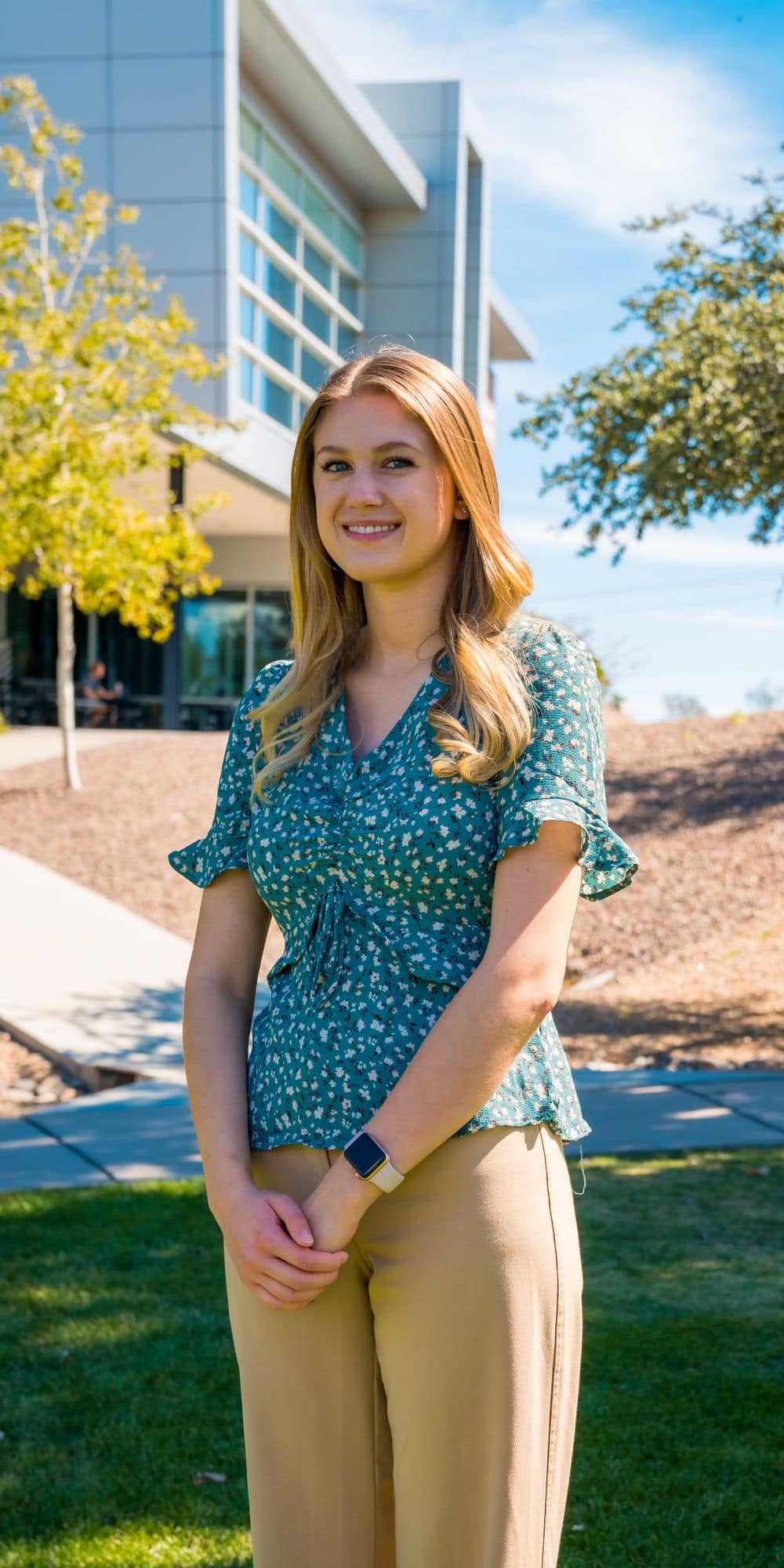

Team Selected to Engage with Washington Policymakers on Research

Congratulations to Clarissa Pavao ('23), Space Physics; Amanda Zhu ('23), Aviation Business Administration; and Dr. Noel D. Richardson, Assistant Professor of Physics and Astronomy.
The three will work together to communicate the importance of undergraduate research, scholarship and the creative inquiry experience.
“The goal is to get undergraduate researchers in front of policymakers and to impact and engage with organizations such as the National Science Foundation and others,” said Richardson.
Scholars Transforming Through Research
 Space Physics student Clarissa Pavao ('23) at the Prescott, Arizona campus. (Photo: Embry‑Riddle / Connor McShane)
Space Physics student Clarissa Pavao ('23) at the Prescott, Arizona campus. (Photo: Embry‑Riddle / Connor McShane)This six-month program kicked off with a two-day training session in Washington D.C. where scholars learned how to develop policy briefs.
“They train you how to write it, what goes into it, how to make it work for different audiences,” said Richardson.
Over the next several months, the team will work to define and refine their project, with the help of periodic online STR mentoring sessions before pitching to policymakers at a Virtual Spring Showcase in April 2023. There are 75 teams participating in the program, representing 62 institutions from 28 states.
“The Washington trip was one of the best academic trips I have ever experienced. This is such a wonderful opportunity. We met a lot of researchers from various universities and learned how to influence the world and help more people through research,” said Zhu.
The Embry‑Riddle Advantage
“The experience was really eye-opening. I had no idea other universities in the U.S. don’t have the access to undergraduate research funding like we do here,” said Pavao. “At Embry‑Riddle, students can apply for their own research funding (with a research mentor). Elsewhere, most students must rely on their mentor to apply for external grants that are usually very competitive, and funding is very limited for most of them.”
“We want to work on ways of bolstering undergraduate research through national funding mandates like the recently passed CHIPS act,” said Richardson. Specifically, the CHIPS and Science Act of 2022 has language in Section 10312 to “provide students with hands-on training and research experiences” and to “develop and scale up successful models for providing students with hands-on course-based research experiences.”
Although the CHIPS act was passed into law in August 2022, funding has not yet been allocated to specific projects creating an opportunity to advocate for more course-based, undergraduate research.
Advocating for Undergraduate Research
“I found the CUR program to be extremely helpful. We learned how to write policies for congressional members, and we learned how to contact those members and pitch our policies. This opportunity was so enlightening and super fun to meet new people and talk about everyone’s different research projects,” said Pavao.
“We are excited to be a part of the inaugural CUR STR program as it expands our ability to advocate for undergraduate research and scholarly and creative inquiry (URSCI) within our community and at the national and international levels. It also gives our students an opportunity to take a leadership role in this process,” said Dr. Anne Boettcher, Assistant Dean of Researcher, Undergraduate Research Institute.

